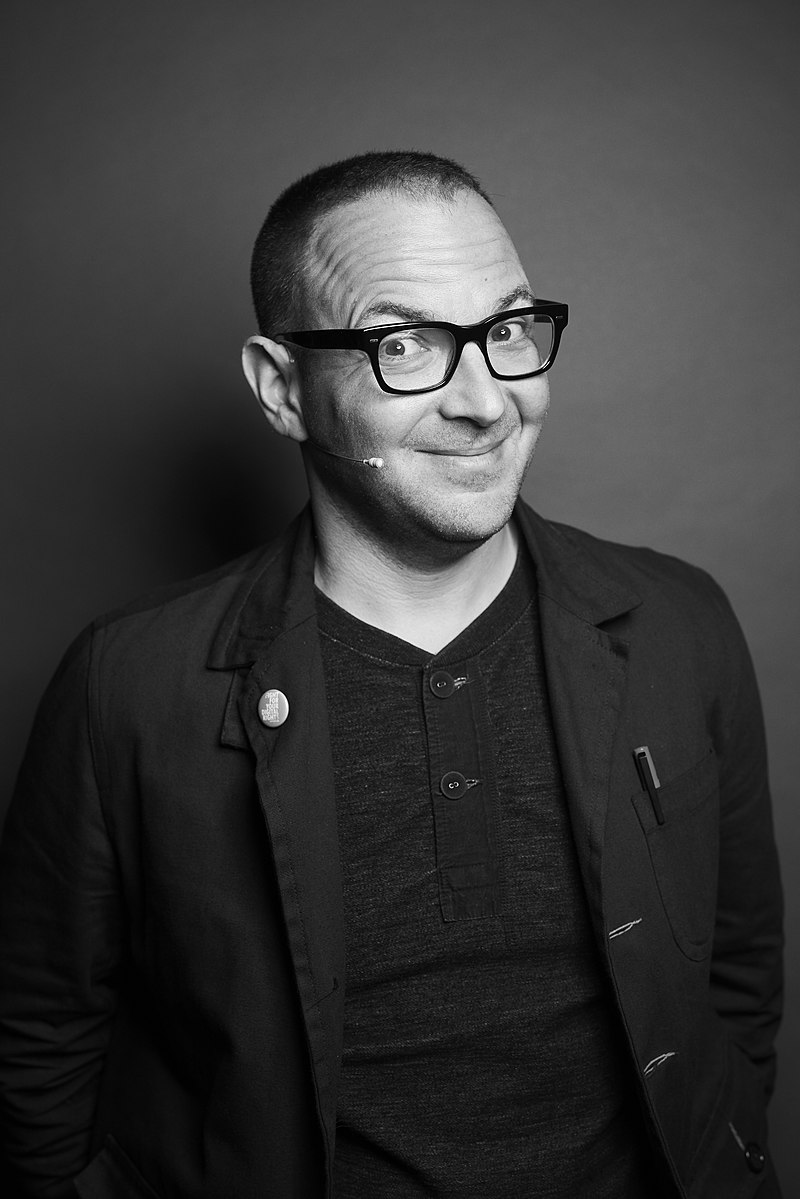
By Dominik Butzmann / re:publica - re:publica faces 2019, CC BY-SA 2.0.
Summary: Cory Doctorow and Joe Mullin (EFF) wrote about software patents this week; this shows that the EFF can still pivot in the right direction if it really wants to
As it turns out, Joe Mullin is fortunately still around (at the EFF, he used to be in the media) and the other day he cautioned "the U.S. Solicitor General Trying To Change The Law To Benefit Patent Trolls". His EFF colleague, Mr. Doctorow, said at almost the same time: "In theory, patents are for novel, useful inventions that aren't obvious "to a skilled practitioner of the art." But as computers ate our society, grifters began to receive patents for "doing something we've done for centuries…with a computer." "With a computer": those three words had the power to cloud patent examiners' minds."
He then changed the subject from software patents to patent trolls (the EFF habitually changes the subject to "bad patents" or "trolls"). To quote: "Patent trolls – who secure "with a computer" patents and then extract ransoms from people doing normal things on threat of a lawsuit – are an underappreciated form of "tech exceptionalism." Normally, "tech exceptionalism" refers to bros who wave away things like privacy invasions by arguing that "with a computer" makes it all different."
Quoting Mr. Mullin, regarding the U.S. Patent and Trademark Office (
USPTO) and 35 U.S.C. €§ 101: "Government officials should be working to reduce, not increase, the burden that low-quality patent lawsuits impose on innovators. So we’re concerned and dismayed by recent briefs filed by the U.S. Solicitor General, asking the Supreme Court to reexamine and throw out the best legal defenses regular people have against “patent trolls”—companies that don’t make products or provide services, but simply use patents to sue and threaten others.
"To truly stop patent trolls, we’ll need wholesale reform, including legislative change. But the current framework of rules governing Section 101 of the U.S. patent laws, including the Supreme Court’s 2014 CLS Bank v. Alice decision, were important victories for common-sense patent reform.
"The Alice decision made clear that you can’t simply add generic computer language to basic ideas and get a patent. The ruling has been consistently applied to get the worst-of-the-worst software patents kicked out of the system. For the most part, it allows courts to state, clearly and correctly, that these patents are a form of abstract idea, and should be thrown out at an early stage of litigation. A win under the Alice rules spares the targets of patent trolls not just from an unjust trial, but from an invasive and expensive discovery process, fueled by a patent that never should have been issued in the first place."
It's encouraging to see that the EFF still covers this issue, however seldom, and we hope it'll do so as frequently as it used to do.
⬆

